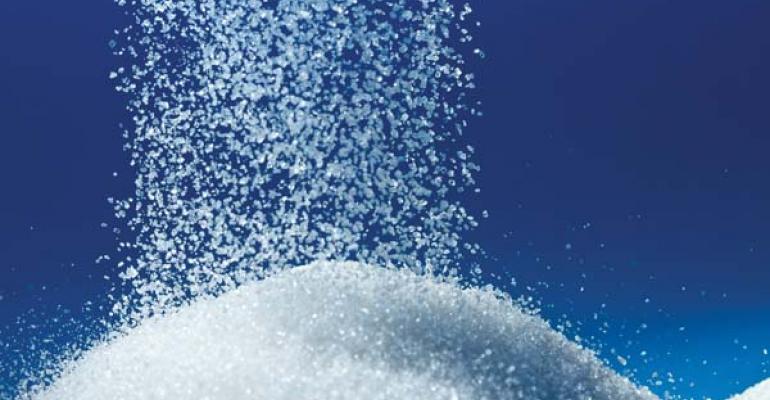#food #health #sugar #sweet
“Here, I am looking at the difference between good and bad sugar!”–Paul Ebeling
‘Good’ sugars are found in healthy whole foods, while ‘bad’ sugars are commonly found in highly refined, processed foods. Refined sugars are extremely easy to eat in excess because they taste delicious.
Sugar is a big part of our foods!
There are lots of different sugars.
Do you know which ones are good? Not all sugars are equal. Some are very good for you in small quantities. Many are less healthy.
The Big Qs: Which ones on the following list would you consider real foods? Which do you use and why?
The Big A’s: Some common sugars
1. White sugar (aka sucrose) is a pure chemical extract of sugar cane or sugar beet with no vitamins or minerals; these are stripped during the extraction process. Refined white sugar is a simple carbohydrate with lots of calories, no dietary fiber and is an isolate. Isolates never occur in whole foods. Vegetarians may note that it may be processed with bone char. Causes a “sugar-high.”
2. Brown sugar is white sugar coated in molasses which will add a few trace minerals but no healthier than white sugar and creates the same “sugar high.”
3. Fructose is not from fruit; it is a commercial, refined sugar and it is no more nutritious than sucrose. It raises cholesterol, makes blood cells more prone to clotting, and it may also accelerate the aging process.
4. Sugar alcohols (Erythritol, Isomalt, Lactitol, Maltitol, Mannitol, Sorbitol, Xylitol, Hydrogenated starch hydrolysates) are neither sugars nor alcohols. They do have calories; Xylitol has more than half the calories of white sugar. The only problems I could find with them are that when they are eaten in excessive amounts they can cause gastrointestinal side effects (bloating and diarrhea), weight gain and increased blood sugars. They are not whole foods so caution must be used; the recommendation is to not use them on a regular basis.
5. Fruit juice concentrate is highly refined and has been stripped of flavor and nutritional value. It is rapidly assimilated in the bloodstream so not highly recommended.
6. Agave nectar is juice extracted from agave (the same plant tequila is made from). It is not raw; it is produced much like maple syrup is; boiled at a high temperature till it is a syrup like the one you buy. It is 42 percent sweeter than white sugar but has the same caloric value and a low glycemic index — a measurement of the relative ability of a carbohydrate to raise blood glucose levels. Most agave syrup has a high fructose content ranging from 70 to 97%, depending on the brand. This is higher than most commercial sweeteners; even much higher than high fructose corn syrup which averages 55%. A recent report from The Weston A. Price Foundation says that it’s as bad for our bodies as high fructose corn syrup. There is much controversy about this sweetener and here is one place to read about it: Agave nectar
7. Date sugar is not a sugar as it is made from ground, dehydrated dates containing all the vitamins, minerals and fiber found in the fruit. It is rich in nutrients and is metabolized more slowly than other sugars.
8. Maple syrup is made from the sap of maple trees. Less refined than white sugar, but at roughly 65% sucrose, is a sugar equivalent. It has a tiny amount of minerals and a very tiny amount of vitamins.
9. Molasses is a by-product of sugar cane or beet sugar refining. High in B vitamins, vitamin E, iron, calcium, magnesium, potassium, chromium, manganese, and zinc. The blackstrap variety is less refined and higher in nutrients. Buy unsulphured molasses, as Sulphur can be toxic in high doses.
10. Honey has similarities to table sugar. Pure raw honey contains small amounts of vitamins, minerals, enzymes, flavonoids and antioxidants. Some research suggests that honey helps in the treatment of gastrointestinal disorders. Honey is as rapidly assimilated in the bloodstream as refined sugar, so is not highly recommended.
11. Coconut sugar is made from the sap of coconut flowers by boiling it down to dry sugar blocks or a soft paste or a granulated form. It contains a higher amount of nutrients compared to brown sugar as it has some amounts of nitrogen, phosphorus, potassium, chlorine, magnesium, sulfur, and micro-nutrients. It has a very low glycemic raising index.
Notes:
- Consuming too much sugar can suppress the immune system from doing its job. It reduces the ability of white blood cells to kill germs and begins immediately after ingestion it has this effect.
- The problem with consuming any simple carbohydrate is that it creates an insulin response that can overwork the pancreas. Over time, the body’s ability to handle all sugars, simple and complex, begins to weaken.
- Since all sugars will cause an elevation in blood sugar, diabetics and people with dietary issues should consult their doctor about the best sweeteners that will be healthy for them.
- Most sugars are strongly acid-forming in the body. They all also have calories.
So, Coconut sugar looks to be the healthiest of the sugars. Rarely use any of the others and if you must, use sparingly
Eat healthy, Be healthy, Live lively









